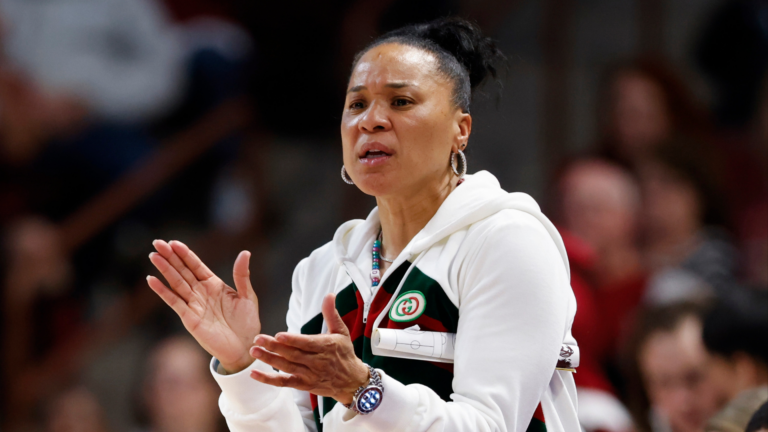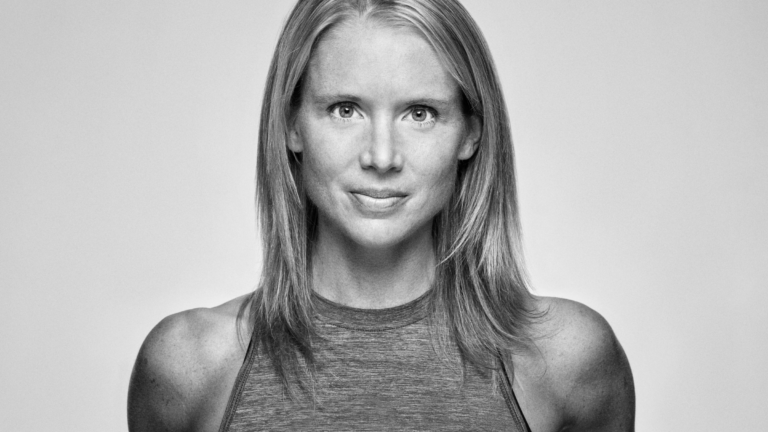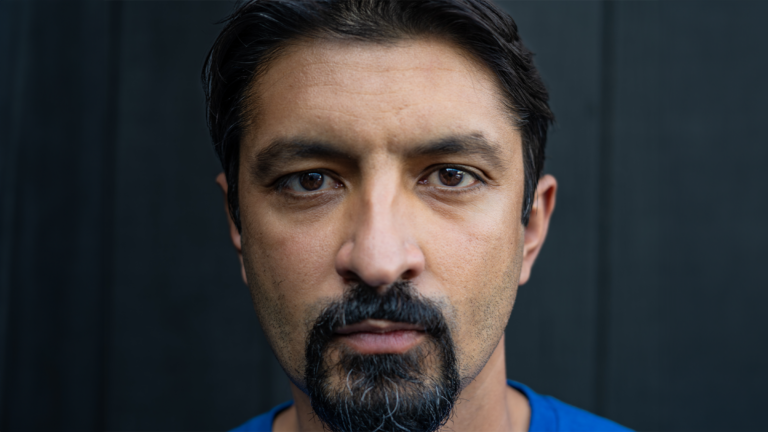This week’s conversation is with Per Lundstam, the Director of Alpine Sport Science for the U.S. Ski & Snowboard team.
He rejoined the organization after an 11-year stint with Red Bull, where he served as the Director of Performance, supporting athletes in their pursuit of improving athletic performance as well as building a platform for optimization within sport sciences.
Prior to Red Bull, Per worked with U.S. Ski & Snowboard from 1994 to 2010 as Head Strength Coach, working with the likes of Olympic champions Tommy Moe, Bode Miller, Ted Ligety, Lindsey Vonn, and Julia Mancuso.
I’ve had the pleasure of knowing Per as both a colleague at Red Bull and as a dear friend…
When it comes to high performance, Per is one the most respected people in the field.
We discuss how to get the most out of individuals and teams – both inside and outside the world of sport.
“If you’re curious, at least you’re open to new ways of doing things versus being stuck in what you’re comfortable with. If we stick with what we are comfortable with, that blocks a lot of opportunity to accelerate performance.”
In This Episode:
What was early life like?
Growing up in Sweden, I was pursuing my own success in sports, alpine skiing, and then I understood that I’m more of a coach and a support person. So that was actually a struggle I had for a long time. It was interesting, my mom saw it way before I did. She said, even when I was in the midst of it, my own career and I had decided to be the best skier in the world like many many other kids and athletes, I was pushing hard. I was training my guts out, and was really driven. I was on a very clear path and my mom, she just said it here and there, she said, “No, you should actually be a coach I think, or support other people.”
When did he begin to focus on coaching others?
I was probably around 20 or so, and I was really interested in other people’s training and at that point in time, I had a lot of experience in programming, and testing, and training, because that was a big part of my passion and maybe something that actually pulled myself out of my own career. I started to help other athletes around me. It started very benign, I guess, when they’re asking me questions about the training, and asking me question about preparation, or technical things around the sport. I gave them my opinion, and it kind of just grew. More and more people were looking at some help, and then some programming, and I got really invested in other people.
Why was he conflicted about coaching?
There was this confusion – why are you concerned about your competitors at that point in time? Why are we not staying on track, and pursuing your own success, and your own career and path in getting better as an athlete. I had that internal struggle all the time, and it just became more and more clear that no, actually I should probably change over. I feel more passionate about the other half and it kind of just grew. It was was more and more apparent as I got older. It was a transition over a long period of time but it just grew stronger and stronger and more clear. through this period of time, I actually was training and leading training with our other athletes that were joining me and we were doing our thing. And then at some point they got really successful and then they wanted me actually to support them in their endeavor. So that kind of, it was almost a natural transition for me.
We underestimate what humans are capable of
I think one thing that’s really interesting that I’ve kind of sensed lately is that we don’t have enough respect for this inherent ability for the human to develop almost unlimitedly, right? So we trying to create technologies, we trying to create strategies and a lot of potentially limiting factors around the human. We don’t attribute enough respect to that the human internal systems, adaptive systems, regulatory systems, are incredible, right? So if we put an athlete in the right environment or the human being in the right environment, they have so much ability to adjust and grow and develop skills in that particular environment. And so we always, as practitioners and sports science people, coaches trying to create the knowledge that the steps and the pathways for human being to get better. But if we could instead create environment and rely on this amazing tool we have as the human body and the plasticity and the abilities to adapt, I think that’s the real crux, right? Is to create the environment for the athlete to flourish.
The individual athletes role in shaping the environment
I’ve seen athletes who can really improve the coaches, the support staff and other people around themselves, by being a warm open and encouraging person. They actually, even if they were not hundred percent on board with the staff or with a coach, they open the dialogue. So they can talk in a very free and open environment. And with that environment, they actually let the coach work at their best, right? So the coach is actually a support person that are working at their best and therefore elevating the whole environment, even for the egocentric athlete in the middle, right? Versus other athletes I’ve seen are not creating good dialogues, are not warm and accepting of coaches and their feedback and so forth and what happens is that the coaches and the environment around the athletes are actually getting suppressed. They’re getting worried, right? Because the athlete is in the middle and they kind of, everybody’s is trying to make sure the athlete gets what they need but if they’re not inviting to discussions and into the environment, they’re actually suppressing the coaches and the staff around them.
What comes to mind when he thinks of a team he was involved with that had great culture?
The US Ski team in the mid 2000, 2005, 2006, we had a lot of amazing athletes but the environment was really exciting at the same time. So the best athletes were actually inviting more athletes into the success. Bode Miller. Daron Rahlves, Jacob Fiola, Scott McaCartney. It was a really amazing environment and expectations were building on itself, but it was in a really healthy way.
What made Bode Miller unique?
He was very confident in his way of looking at things and he didn’t get limited by the community’s thoughts about how things should be done. He definitely challenged the status quo of how things were done and how the community thought it should be done. He had a really interesting viewpoint of those things which I think brought some liberation away from what was the status quo of how we looked at as a community looked at ski racing at that point in time. I think that actually goes for almost every new superstar that comes around. They have a little bit different thinking of what is possible and they don’t want to be limited by what is there now.
What are some first principles for Per?
This curiosity to always try and understand a little bit more. And I think curiosity creates a lot of sub behaviors that are beneficial for a group of two men or for your own growth as a person. So many times when I tried to peel off the onion and understand what the truth is for me and factors that have beneficial expressions I guess, curiosity is something that pops up at the very bottom. And I think that drives a thinking that you always want to learn more. You don’t know everything. You don’t know where we are on this trajectory of performance or humanity, whatever it is. It’s pure curiosity of looking at other ways of thinking and looking at you as a person. Can you look at things differently? Can you change a little bit? How’s your behavior? Can you do things better? So, I think that’s one of the kind of fundamental pieces I come back to when people ask me about a system or a program, and also what you just asked for an expression of the fundamental pieces, and what you think is right and wrong type of thing.
What’s the point of high performance?
Getting together on a journey that can push us forward, if we are a group that’s pushing in the same direction we can achieve more than yourself, being just one person. So I think seeing performances when it becomes this bigger than yourself type of environment. That’s what we have seen when groups of athletes do really well or teams do really well. It’s a culture that’s supported by the individual but bigger than themselves. Culture really is a personality of a group.
The importance of a shared vision
We’ve seen multiple times where you have teams and organizations who think that they’re going to achieve amazing things but nothing happens right? Or they go backwards even. So it’s how you establish goals and a vision that are supported within that community or group of people. We always set goals and we have methods to reach those goals but it’s hard to actually believe in it and actually be on that journey together to achieve it, right? So I think that’s a big kind of piece in this whole thing is to get a goal in place, a vision in place that’s supported by groups of people, many individual people.
How does he define high performance?
High-performance is the ability to create an environment, a pathway for individuals or for us to open up and optimize what we have developed for thousands of years really in our genes and DNA for individuals to optimize that and show what is possible breaking grounds. And then start to fill in behind that with the rationale and knowledge and insight to why those things happen. High performance is that next level of bringing us as a community into that next dimension of what is possible, right? It’s showing that we are moving forward, we are expressing new records, we are breaking down what we thought was possible or there’s a new frontier that kind of inspires, drives, excites communities, the next generation to achieve even more.
What are some habits he’s found incredibly valuable?
To give time and space for reflection, and a little bit deeper thinking. Almost like philosophying a little bit, and trying to find that intention with who you are, and what you’re trying to do. I know you know we stress a lot through the day, and trying to achieve what needs to be achieved, but then when we rest, or step away from that we’re not in a place where we’re thinking about how we are away from the stress. Right? I think it’s really interesting if you could find a safe haven, or a mental place where you can just be you, and you can try to get deeper into your thoughts, and maybe go through generational processes, and things, who you are on that whole entire trajectory type of thing.
How does he define mastery?
I think mastery is when you actually have insight, or material, or thoughts, or knowledge that you can contribute with to a group of people that haven’t seen, or been exposed to that thing before. I think it’s when you can contribute to a group of people, or to an athlete, or to a community, with something that hasn’t been seen before, so to speak, in that world.


